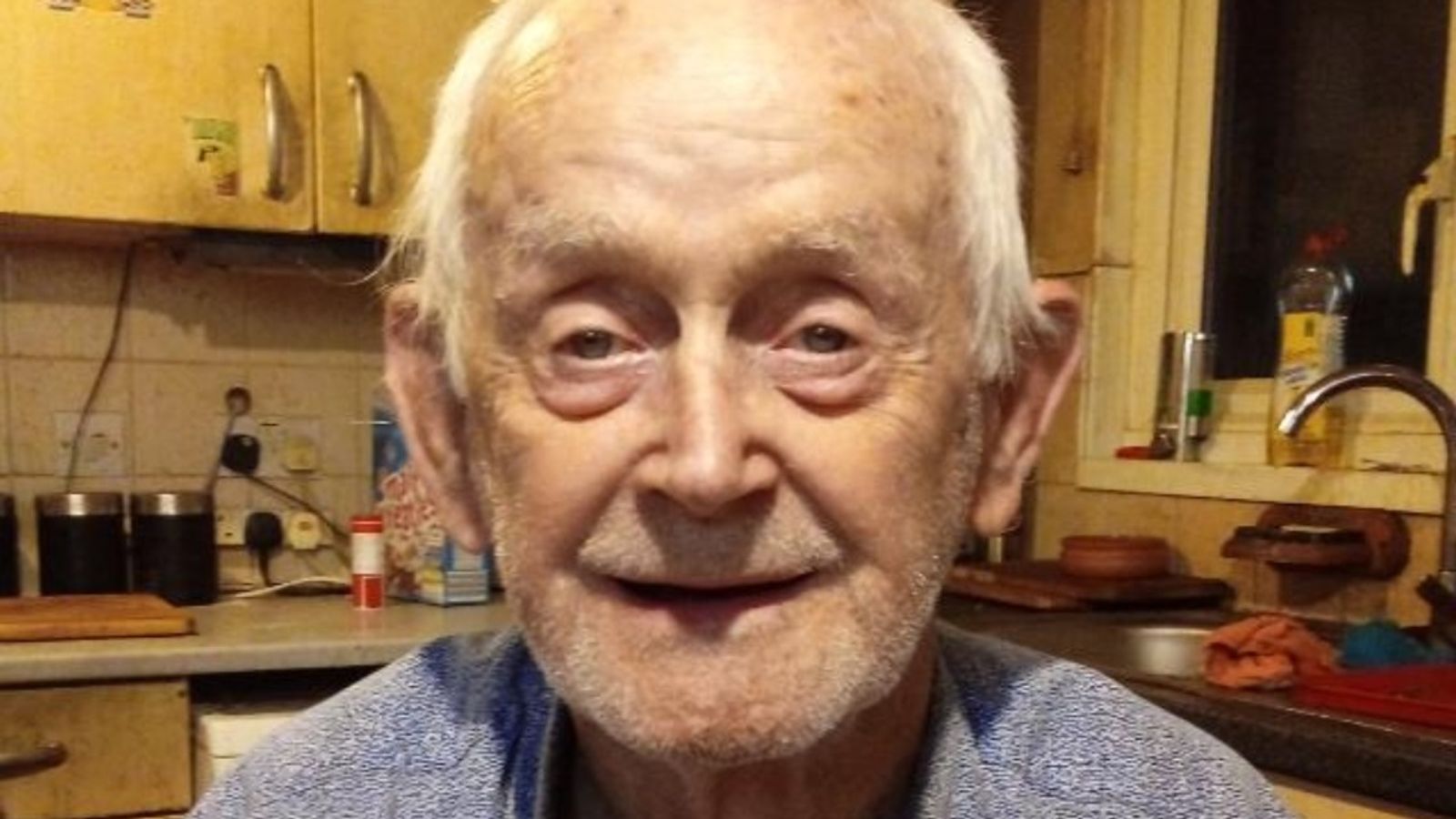By Richard Marsden and James Tozer and Rory Tingle, Home Affairs Correspondent For Mailonline
17:02 31 Jan 2024, updated 17:09 31 Jan 2024
- For confidential support, call the Samaritans on 116123 or visit samaritans.org
A pregnant primary school teacher who took her own life while battling acute ‘morning sickness’ went from feeling ‘over-the-moon’ at discovering she was expecting for the first time to being ‘reduced to a shell’.
Jessica Cronshaw, 26, was given CPR and rushed to hospital where her daughter Elsie was delivered by caesarean section at 28 weeks in a bid to save her life. Four days later the tiny premature baby died – followed by her mother a day later.
Her grieving family wept as a coroner yesterday that failings by medics had contributed to her worsening mental health. Her sales executive partner Eddie Leck said: ‘It felt like no-one was listening to us’.
Miss Cronshaw’s decline was described in heartbreaking detail by her mother, Susan, who told how her ‘outgoing’ and ‘energetic’ daughter stopped seeing friends and became ‘extremely skinny with sunken eyes, pale skin and hair matted’.
The young mother-to-be had hyperemesis gravidarum (HG), an acute form of nausea and vomiting from which the Princess of Wales suffered during each of her pregnancies.
Following the coroner’s ruling yesterday, charity Pregnancy Sickness Support said there must be ‘systemic change in approach to HG management’ – and that such a tragedy must never happen again.
Medics failed to ask her about Miss Cronshaw’s mental health despite her saying she was feeling ‘down’. She was also wrongly told that the one medication which did relieve her symptoms could harm her unborn child, prompting her to cut her dose.
Just over six weeks later, Miss Cronshaw’s mother Susan tragically found her hanged in her bedroom at the family home in Accrington, Lancashire.
While she was resuscitated and taken to hospital where her daughter Elsie was delivered by emergency caesarean in a bid to save her life, neither survived.
Since her death, Miss Cronshaw’s family have spoken out about a lack of support for mothers-to-be who are struck down by the crippling condition.
On Tuesday, coroner Kate Bisset said she was ‘satisfied that her care contributed to a deterioration in her mental health’ which in turn led to the ‘impulsive’ decision to end her life.
Ms Bisset highlighted ‘failings’ in Miss Cronshaw’s treatment and said in her findings: ‘The absence of comprehensive care for Jessica’s severe pregnancy sickness was a contributing factor to her mental health deterioration.
‘This case should serve as a reminder to healthcare professionals about the critical importance of addressing the wide-ranging impacts of hyperemesis gravidarum, including its mental health aspects.’
Health and Social Care Secretary Victoria Atkins last week highlighted the tragedy as she announced new support for mothers-to-be across England.
And charity Pregnancy Sickness Support said there was ‘a direct correlation’ between her sickness, ‘her severe mental health decline and subsequent death’.
The charity added that the inquest’s findings must be ‘a pivotal moment for healthcare systems, emphasising the necessity for timely, integrated care addressing both physical and mental health challenges in pregnancy’.
Charlotte Howden, chief executive of Pregnancy Sickness Support, said: ‘The coroner’s detailed investigation reveals significant care gaps for women with hyperemesis gravidarum (HG).
‘This is a major advancement in acknowledging their comprehensive care needs. It is imperative that healthcare providers across the UK enact necessary changes to prevent a recurrence of such a tragedy.’
And Dr Caitlin Dean, spokesperson and trustee at Pregnancy Sickness Support, who advocated for Miss Cronshaw’s family at the inquest, added: ‘The inquest’s acknowledgement of the link between inadequate HG treatment and severe mental health issues is a long-overdue revelation.
‘For too long, the severity of HG has been underappreciated. This marks a crucial turning point for how this condition is perceived and treated.’
The charity said hospitals and health trusts should see the findings of the inquest as ‘an impetus for reviewing and improving their practices’ and ‘ensure that the tragedies experienced by Jessica Cronshaw and her family are not repeated’.
Dr Dean added: ‘What’s shocking and scary is that the failings in this case are more often than not the experience a woman with HG has of the healthcare system.
‘The vast majority of women say they are not listened to, are just dismissed as having morning sickness. That is absolutely normal and what’s got to change and until that changes, there will be another death like this.’
The inquest heard that since her death, Miss Cronshaw’s family have spoken out about a lack of support for mothers-to-be who are struck down by the crippling condition.
Praising the family’s campaign as Miss Cronshaw’s mother and partner wept in court, coroner Ms Bisset said there needed to be more ‘public awareness’ of the ‘crippling impact’ of HG.
Welcoming the coroner’s comments, the family said afterwards that they were ‘grateful’ to her for recognising the ‘severe and devastating’ effect it had on Miss Cronshaw.
‘Jess’s family now hope that this will lead to a major change in the care and treatment for women suffering HG so that such a tragedy will not happen again,’ they added.
The severe nausea affected ‘driven and confident’ Miss Cronshaw within weeks of finding out she was pregnant for the first time in May 2022, her inquest was told.
‘She went from an outgoing, energetic young woman to struggling to lift her head from the pillow at times,’ her mother Susan Cronshaw told the hearing.
Miss Cronshaw had to take time off work and ended up confined to bed, the inquest heard.
In September, she was put on new medication which enabled her to eat slightly more.
Later that month, she was wrongly informed over the phone by a midwife that it could harm her unborn child and began reducing her dose.
The inquest heard a statement from obstetrician Dr Shambhavi Singh who said she could not recall telling midwife Allison Whitehead that Miss Cronshaw needed to reduce her dose.
But Ms Bisset said the midwife ought to have been able to rely on being given correct information by a doctor.
Miss Cronshaw became increasingly paranoid, believing engineers installing fibre optic cables in the street were trying to hack into her phone.
In his own statement, Mr Leck described a ‘rapid transformation from an energetic, active woman to a woman who barely had the strength to get out of bed in the morning’.
Speaking of the repeated medical appointments, he said ‘it felt like no-one was listening to us’.
After being found hanged on November 14, 2022, she was given CPR and rushed to hospital where her daughter Elsie was delivered by caesarean section in a bid to save her life.
But four days later the tiny premature baby died at the side of her mother, who was in intensive care.
The following day the family were told Miss Cronshaw had suffered irreversible brain damage and agreed to the withdrawal of life support.
She died on November 19.
Questioned by Mr Holden, midwife Ms Whitehead said she had never heard of Xonvea when Miss Cronshaw called the antenatal unit asking for a repeat prescription.
She said she ‘tactfully’ passed on the advice about it being potentially harmful to an unborn child in good faith after speaking to two doctors.
Saying ‘hindsight is a wonderful thing’, the midwife said in retrospect she should have booked a consultant appointment for Miss Cronshaw.
‘It was a very busy shift,’ she added. ‘I’m human, I didn’t do it.’
She said she had since read up on Xonvea in her own time and accepted that it was not dangerous to an unborn child.
Ms Whitehead said she had not picked up any concerns over Miss Cronshaw’s reaction to her advice.
But she said it could be ‘difficult to grasp’ a mother-to-be’s state of mind over the phone.
‘I think a face-to-face conversation would have perhaps altered my reaction,’ she added.
The inquest heard a review carried out by East Lancashire Hospitals NHS Trust found there had been ‘red flags’ in what Miss Cronshaw said about how she was feeling which should have led to a mental health referral.
Mothers-to-be who suffer from vomiting now have regular weight checks as well as closer monitoring of whether they are struggling mentally, it was told.
In addition, pregnant women must not have their medication changed without a consultation with an obstetrician.
However, Ms Bisset said she plans to write a ‘prevention of future deaths’ report highlighting concerns raised by Miss Cronshaw’s family.
Obstetrician Dr Helen Collier, who prescribed Xonvea to Miss Cronshaw after alternatives failed to help, said the drug was safe to use throughout pregnancy.
Asked by Philip Holden, representing the family, if it had been ‘appropriate’ for another doctor to recommend cutting the dose without seeing the patient face-to-face, Dr Collier replied that it would have been ‘preferable’ to have spoken to her directly.
Miss Cronshaw’s family’s campaign has been supported by charity Pregnancy Sickness Support and Hyndburn MP Sara Britcliffe, who last July raised their concerns in a Westminster Hall debate.
Announcing changes to maternal care at last week’s inaugural Women’s Health Summit, hosted by The Royal College of Obstetricians and Gynaecologists, the Health Secretary referenced the deaths of Miss Cronshaw and her daughter.
Highlighting the ‘enormous mental and emotional toll’ that pregnancy and birth can have on women, Ms Atkins said: ‘This was demonstrated in the case of a young woman who passed away when extreme pregnancy sickness left her unable to eat, drink or complete daily tasks.’
In response, Ms Britcliffe said: ‘I am so happy that through their tireless work and by bringing Jess’ story to Parliament, Jess and Elsie’s family have made a difference and created change for all women who suffer from HG in the future.’
In a narrative conclusion to the inquest, the coroner said: ‘If love alone could have saved Jessica and Elsie, I am quite sure we would not be sitting here.
‘Jessica Elizabeth Cronshaw was, and is, a very much-loved daughter, granddaughter, sister, partner and friend.
‘Importantly, it must not be forgotten that she was also a much-loved mother, a mother who loved her baby daughter and had hopes, dreams and aspirations for a long and happy life with her partner and daughter.’
The cause of death for Miss Cronshaw was recorded as hypoxic brain injury, caused by hanging, while Elsie was found to have died from ‘severe intrauterine hypoxia caused by maternal hypoxic arrest’.
The coroner referenced 13 ‘interactions’ between Miss Cronshaw and hospitals, doctors and midwives in the months before her death – but she was not offered mental health support.
On October 3, Miss Cronshaw had described anxiety and a feeling of isolation due to being away from work.
But a doctor recorded that ‘he did not consider that Jess was depressed and did not consider she met the threshold for referral to peri natal mental health services’.
On October 11, Miss Cronshaw told a midwife she felt down and missed the children she taught at school but there was no discussion of mental health.
And on November 8, six days before she was found hanged, Miss Cronshaw told how she felt ‘down’, although she did not disclose any thoughts of suicide or harm.
At earlier consultations in August and September, she was not asked about her mental health or ‘wellbeing’, the inquest was told.
Coroner Ms Bisset highlighted how a subsequent investigation into Miss Cronshaw’s care, carried out by Royal Blackburn Hospital, found there were 25 areas in which her care ‘should or could have been done differently’.
These included her remaining on ‘the standard antenatal care pathway despite ongoing symptoms of Nausea and Vomiting’, failure to assess her condition or symptoms, and a lack of access to her GP records.
Meanwhile, the investigation found communication with Miss Cronshaw and her family appearing ‘flippant’ at times so they ‘felt as if their concerns were not listened to’.
Ms Bisset said: ‘I am certain that all the clinicians involved in Jess’ care had the best intentions. However, there were failings in her care.’
She said that ‘further exploration of (Miss Cronshaw’s) mental health ought to have happened’.
But the coroner added that she ‘cannot be satisfied it is more likely than not that if this care had been different, Jess’ mental health would not have deteriorated to the extent to which it did and thus she would not have died at the time at which she did’.
East Lancashire Hospitals NHS Trust was approached for comment.
For confidential support, call the Samaritans on 116123 or visit samaritans.org

Sarah Carter is a health and wellness expert residing in the UK. With a background in healthcare, she offers evidence-based advice on fitness, nutrition, and mental well-being, promoting healthier living for readers.








